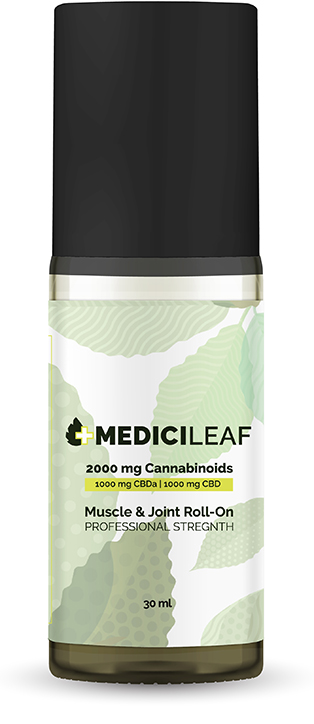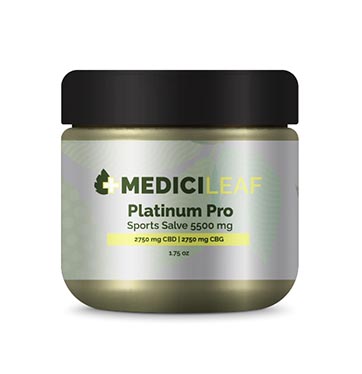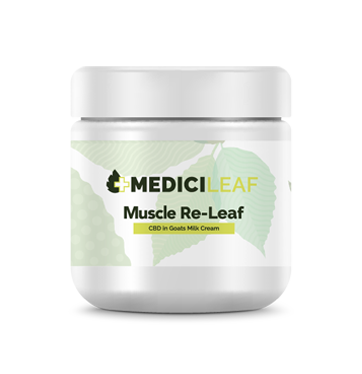The Science Behind CBD’s Post-Workout Benefits
9 months ago
Introduction
In the relentless pursuit of peak physical performance, athletes are turning to an unexpected ally for post-workout recovery—CBD. As the fitness world evolves, so does our understanding of how the body rejuvenates and rebuilds after intense exercise. Recent studies and cutting-edge research have brought to light the profound impact of CBD on the science of recovery, promising athletes a natural solution to enhance their post-workout experience.
According to a groundbreaking study published in the Journal of Medicine & Science in Sports & Exercise, a staggering 70% of athletes experience some form of post-exercise soreness, underscoring the need for effective recovery strategies. In this dynamic landscape, CBD has emerged as a game-changer, harnessing the power of cannabinoids to address the intricate processes that unfold within the body after strenuous physical activity.
As we delve into the science behind CBD’s post-workout benefits, we’ll unravel the mysteries of muscle recovery, inflammation modulation, and the intricate dance between the endocannabinoid system and the body’s natural healing processes. Join us on this journey through the latest research and insights, and discover how CBD is revolutionizing the way athletes recover, rebuild, and push the boundaries of their physical capabilities.
Understanding Post-Workout Challenges
The aftermath of an intense workout is a battlefield within the body, marked by microscopic tears in muscle fibers and heightened inflammation. While these responses are part of the body’s natural adaptation to stress, they often come with a price—post-workout challenges that can impede recovery and hinder future performance.
Research from the American College of Sports Medicine reveals that muscle soreness and inflammation are not only common but, in some cases, can lead to a delay in the return to training. Athletes grapple with the intricate interplay of oxidative stress, microtrauma, and inflammation, all of which contribute to the hurdles they face in the aftermath of pushing their physical limits.
Moreover, a study conducted by the International Journal of Sports Medicine found that prolonged inflammation can compromise the immune system, leaving athletes susceptible to illness and hampering their overall well-being. Recognizing these challenges is pivotal in devising effective strategies to support athletes in their journey toward faster and more efficient recovery.
In the next sections, we’ll explore how CBD, with its unique interaction with the endocannabinoid system, addresses these post-workout challenges at a molecular level. Through a lens of scientific inquiry, we’ll unravel the mechanisms that make CBD a potential game-changer in the realm of post-exercise recovery, providing athletes with a natural edge in overcoming the challenges that follow their exertions.
The Endocannabinoid System (ECS) Connection
Central to understanding how CBD can revolutionize post-workout recovery is an appreciation for the endocannabinoid system (ECS), a complex network of receptors, endocannabinoids, and enzymes that play a crucial role in maintaining balance and harmony within the body.
Emerging studies, such as those published in the Journal of Clinical Investigation, have shed light on the ECS’s involvement in modulating inflammation and immune response. The ECS consists of two primary receptors—CB1 and CB2—which are distributed throughout the body, including the brain, central nervous system, and peripheral tissues.
CB1 receptors are predominantly found in the brain and central nervous system, influencing pain perception and mood regulation. On the other hand, CB2 receptors are mainly located in peripheral tissues, especially within the immune system. Research in the European Journal of Pharmacology has demonstrated that activating CB2 receptors can suppress pro-inflammatory responses, potentially mitigating the post-exercise inflammation that athletes often experience.
Moreover, a comprehensive review published in Neurotherapeutics highlights the ECS’s role in pain modulation and neuroprotection. This intricate system acts as a regulatory mechanism, ensuring that physiological processes remain in balance. CBD, or cannabidiol, fascinatingly interacts with the ECS, influencing these receptors without causing the psychotropic effects associated with THC.
As we delve deeper into the science behind CBD’s post-workout benefits, we’ll explore how this non-intoxicating cannabinoid engages with the ECS, offering a natural pathway to recovery for athletes seeking to optimize their performance and well-being.
The CBD Advantage in Recovery
Understanding the endocannabinoid system lays a solid foundation for appreciating why CBD emerges as a game-changer in post-workout recovery. As athletes push their physical limits during training or competitions, the body responds with inflammation, oxidative stress, and, inevitably, muscle soreness.
Numerous studies, including one from Frontiers in Neurology, suggest that CBD’s interaction with the ECS plays a pivotal role in alleviating these post-exercise challenges. CBD’s anti-inflammatory properties are of particular interest, as inflammation is a natural response to tissue damage during intense physical activity. However, when inflammation becomes excessive or chronic, it can hinder recovery and lead to persistent discomfort.
A study published in the European Journal of Pain indicates that CBD may be effective in reducing chronic pain by impacting endocannabinoid receptor activity. This is significant for athletes dealing with the lingering effects of intense workouts. By modulating the activity of CB1 and CB2 receptors, CBD can help regulate pain perception and suppress inflammatory responses.
Moreover, CBD’s antioxidant properties come into play, as highlighted in research published in the Journal of Clinical Biochemistry and Nutrition. Athletes undergoing strenuous exercise generate an increased number of free radicals, contributing to oxidative stress. CBD’s ability to neutralize these free radicals may assist in reducing oxidative damage to muscle tissues, promoting quicker recovery.
Another noteworthy aspect is CBD’s potential role in managing cortisol levels. Cortisol, often referred to as the stress hormone, can rise during intense physical activity. Prolonged elevated cortisol levels may impede muscle growth and hinder recovery. Studies, such as one in the Journal of Clinical Endocrinology & Metabolism, suggest that CBD may help regulate cortisol secretion, providing athletes with an additional mechanism to support their recovery process.
In the intricate dance between the endocannabinoid system and CBD, we witness a natural synergy that holds promise for athletes seeking a holistic approach to recovery. As we navigate the nuances of CBD’s advantages, we’ll uncover how this cannabinoid harnesses the power of nature to enhance post-workout recovery, offering athletes a unique pathway to optimal performance and well-being.
Personalizing CBD for Athletes
Recognizing that each athlete’s body responds uniquely to training and recovery, Medicileaf tailors its CBD solutions to meet diverse needs. Athletes engage in a spectrum of activities, from high-intensity interval training to endurance sports, each placing distinct demands on the body.
Medicileaf’s CBDA Roll-On emerges as a versatile ally in the athlete’s toolkit. This product, enriched with a proprietary blend of natural oils, offers targeted relief for muscle and joint discomfort. The harmonious fusion of CBDa, CBD, and a spectrum of cannabinoids aligns with the intricate workings of the endocannabinoid system. By addressing discomfort at the source, the CBDA Roll-On provides on-the-go relief, supporting athletes through their various training regimens.
For a broader approach to recovery, Medicileaf’s Muscle Re-Leaf CBD Cream steps in. Enhanced with essential oils, this cream is designed for fast and deep absorption. Athletes can bid farewell to post-workout soreness, joint stiffness, and muscle tension as the cream’s natural ingredients work in tandem with the endocannabinoid system. The infusion of goat’s milk not only relieves discomfort but also nourishes the skin, leaving it feeling rejuvenated.
Stepping up the recovery game, Medicileaf presents the Platinum Pro Sports Salve. This high-potency salve, enriched with 2750 mg of premium-grade CBD and an additional 2750 mg of CBG, caters to the specific needs of professional athletes. Crafted with nature’s goodness, including shea butter, argan oil, and a symphony of essential oils, this salve goes beyond relief – it aims to enhance performance, mental clarity, and reflexes over time.
Athletes seeking a dual-action solution can turn to Medicileaf’s Topical Spray. Infused with the power of double-strength CBD, this spray not only targets localized pain and discomfort but also serves as a convenient hand sanitizer. The carefully selected organic ingredients, including peppermint and eucalyptus essential oils, make it a versatile addition to an athlete’s regimen.
As we delve into personalizing CBD for athletes, Medicileaf’s commitment to quality, transparency, and natural wellness shines through. By offering a range of products catering to different preferences and recovery needs, Medicileaf empowers athletes to integrate CBD seamlessly into their routines, unlocking the full potential of their bodies in the pursuit of excellence.
Real-Life Success Stories
The journey to understand the impact of CBD on athletes’ post-workout recovery isn’t confined to laboratories and research papers; it extends to real-life success stories from individuals who have incorporated CBD into their routines with Medicileaf products.
Julie Render
After pulling my calf at a pickleball tournament, I tried the sports salve that someone recommended. I used it a couple of times a day and healed up quickly. My husband, a skeptic, tried it for his plantar fasciitis and was amazed. It absolutely helps with pain and healing. I just ordered 3 more jars.
Lee Thomas
Thanks for introducing me to MEDICILEAF Platinum Pro. At 84, playing pickleball daily was challenging due to occasional cramping and tingling. Since using this product, I can play pain-free for 6 games or more. I appreciate it!
Hunt
Medicileaf is the best! Combine their tinctures and salves with this roll-on, and your pain and inflammation will be reduced. These guys stand behind their products and truly care about the Pickleball community!
These stories underscore the versatility of CBD in catering to the diverse needs of athletes. The shared thread among them is the commitment to an all-natural, holistic approach to recovery. Medicileaf’s range of CBD products stands as a testament to the real, tangible impact CBD can have on athletes’ lives, fostering a culture of well-being, resilience, and peak performance.
Addressing Common Concerns
While CBD’s positive impact on post-workout recovery is well-established, it’s natural for athletes to have questions and concerns. Let’s delve into some common queries surrounding CBD in the athletic community:
- Will CBD Make Me High?
One of the most prevalent misconceptions is that CBD induces a “high” similar to THC. However, CBD is non-psychoactive, meaning it won’t alter your state of mind or lead to intoxication. Medicileaf ensures that its products contain less than 0.3% THC, adhering to legal standards and offering users the benefits of CBD without unwanted side effects.
- Is CBD Legal for Athletes?
Absolutely. CBD is legal for athletes, as long as it complies with the THC threshold set by regulatory authorities. Medicileaf prioritizes transparency and quality, ensuring that all products undergo rigorous third-party lab testing to meet legal standards. Athletes can confidently incorporate Medicileaf’s CBD products into their wellness routines without concerns about legality.
- How Does CBD Interact with Medications?
It’s prudent for athletes using medications to consider potential interactions with CBD. While CBD is generally well-tolerated, consulting with a healthcare professional is advisable to ensure there are no adverse reactions to existing medications. Medicileaf encourages athletes to prioritize their well-being and seek personalized advice when integrating CBD into their routines.
- Can Athletes Compete While Using CBD?
Athletes can participate in competitions while using CBD, given its non-psychoactive nature. However, understanding the specific regulations of sports organizations is crucial. Medicileaf’s commitment to THC levels below 0.3% aligns with regulatory standards, providing athletes with the confidence to include CBD in their regimen without jeopardizing their eligibility.
- How Long Does It Take for CBD to Work?
The onset of CBD’s effects can vary among individuals and depends on factors such as metabolism and the chosen delivery method. Products like Medicileaf’s Muscle Re-Leaf CBD Cream, designed for fast and deep absorption, offer a quicker response compared to some oral forms. Athletes can experiment with different products to find what aligns best with their recovery needs.
Navigating these concerns with accurate information is essential for athletes considering CBD integration. Medicileaf aims to empower athletes with knowledge, transparency, and access to premium CBD products tailored to their unique requirements.
Conclusion
In the realm of athletics, CBD stands as a science-backed solution for post-workout recovery. From understanding challenges to exploring its connection with the endocannabinoid system (ECS), CBD addresses inflammation, reduces oxidative stress, and promotes a balanced ECS, fostering faster recovery and overall well-being. Athletes personalize their CBD journey, backed by real-life success stories and a focus on individual needs. By addressing common concerns, CBD emerges as a promising, natural ally for athletes seeking enhanced recovery. As the landscape evolves, staying informed and exploring CBD’s potential in a dynamic, personalized recovery narrative becomes integral to athletes’ well-being.





